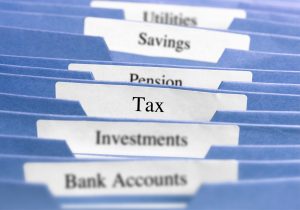The United Kingdom’s non-dom tax regime has a storied history. It dates back to 1799 when income tax was introduced and exempted colonial investments from taxation. King George III was on the throne and William Pitt the Younger was Prime Minister. The globetrotting officers of the British Empire were only taxed on money brought into the country so overseas investments were advantageous and fortunes were made.
Fast forward to today and the regime has become a political hot potato. Successive governments have struggled to justify its existence and the drumbeat calling for reform or abolition has grown louder. Advocates point out that attracting wealthy people to the United Kingdom with a preferential tax system is good for the economy, while detractors highlight a lack of fairness. The politicians are yet to come up with an answer that satisfies everyone.
The modern non-dom regime allows UK residents who have their domicile outside of the country to only pay tax on their foreign income and capital gains if they are remitted into the country. The foreign wealth of non-doms is also exempt from inheritance tax, which currently stands at 40%. The first seven years of UK residency with non-dom status come without a fee, but if you have been a non-dom for seven of the previous nine tax years, there is a GBP 30k annual charge. This jumps to GBP 60k annually for those that have been non-doms for 12 of the last 14 tax years. The status is lost when someone has been a UK resident for 15 of the previous 20 tax years.
Controversy around the non-dom scheme
The controversy surrounding non-doms has ebbed and flowed in the United Kingdom and so far it has survived with only minor reforms, the last being back in 2017. But the regime now looks to be under more threat than ever. The Chancellor of the Exchequer, Jeremy Hunt, recently bowed to pressure and asked the UK Treasury to look into how much could be raised by ending the status of non-doms. While Keir Starmer’s opposition Labour Party, widely predicted to oust the ruling Conservative Party at the next election, have stated publicly that they would abolish the regime and replace it with a shorter-term alternative. The UK’s current economic woes appear to have created the most hostile environment yet for the longstanding non-dom regime how it will fare is far from certain.
How the US interacts with the UK?
The US is one of five countries in the world who tax on a citizenship basis. This means that US people living in the UK will still be liable to pay tax to the IRS even if they are claiming the remittance basis. By claiming the remittance basis, you exempt your UK offshore earnings from UK tax at potentially 45% and they are only subject to US tax at 37% so a saving of 8%.
So, should I think about claiming the remittance basis as a US person? This question gets asked regularly and you should always receive tax advice on this point. It’s not as straight forward as saying the US rates are lower so I’ll suffer US tax on my worldwide income and protect it on the UK side. There are several things which can be lost such as the personal allowance, access to funds in the UK and the capital gains exemptions.
Planning for the future
So how should those currently claiming non-dom status or thinking of taking it up react? Planning for all eventualities is essential.
- The first possibility is that the regime could survive intact. Non-doms contribute an estimated GBP 8bn a year in UK taxes which is not an insubstantial amount. The globally mobile and wealthy tend to have choices about where they are located and many countries offer a form of non-dom residency. The prospect of chasing away this tax income is not appealing to any government and the argument that the UK needs to remain attractive to wealthy international residents could still win out. If this happens, it will be possible to simply carry on as before.
- The second possibility is that we will see further reforms to the current regime. Those that use the non-dom regime have experienced reforms before and in this case may have to adapt again. The most extreme changes would be complete abolition or the introduction of a new regime altogether. Detail is currently scant on how this would work, but keeping a close eye on any pronouncements from Westminster would be wise.
Whatever the outcome, speaking to a wealth adviser as early as possible is a sensible move. An experienced adviser can talk you through any possible changes and help prepare for what comes next. You may find it useful to plan out the effects each possibility would have on your finances or investigate the pros and cons of alternative non-dom regimes.




